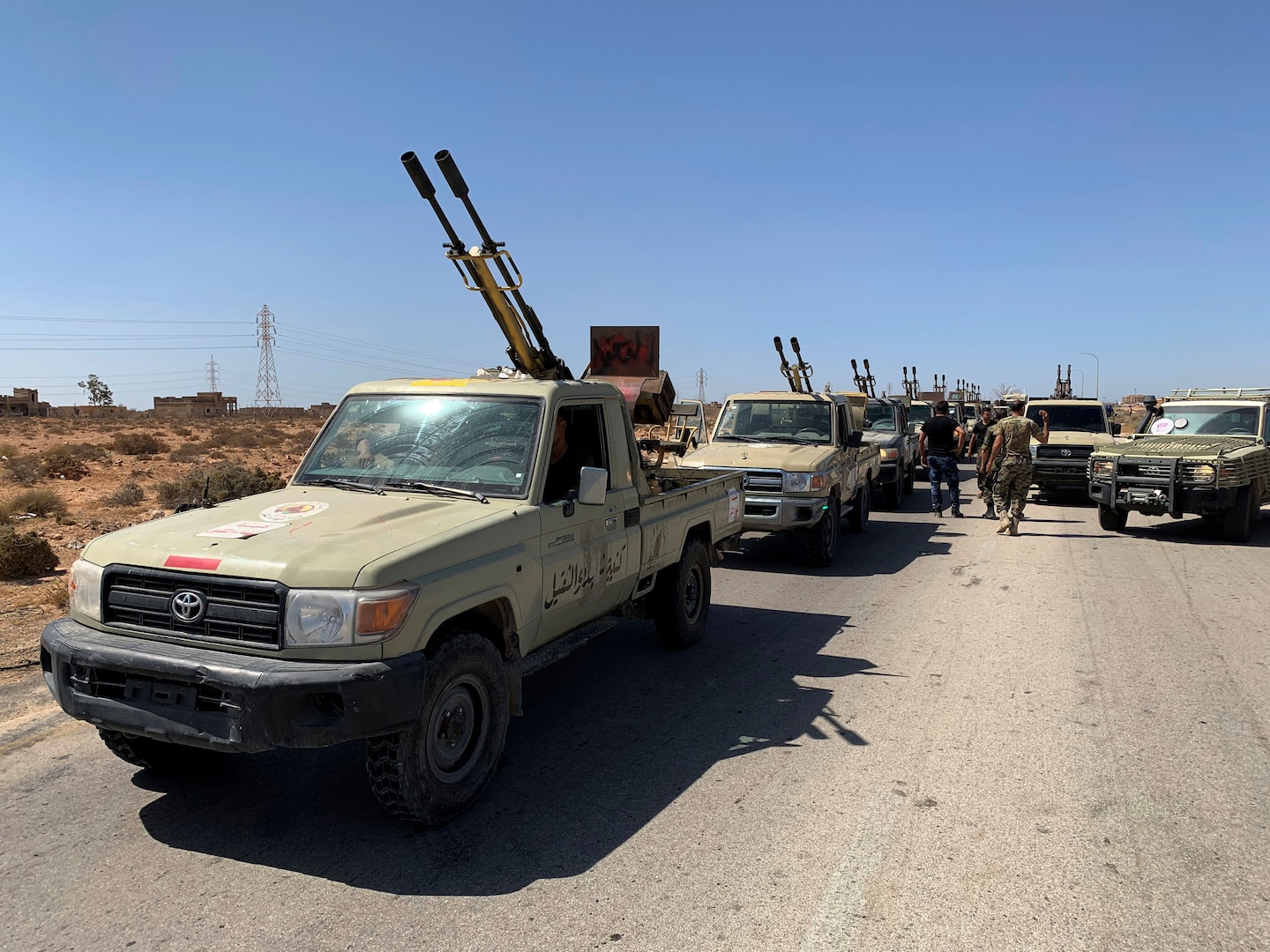Libya’s war becomes a global scramble for power and prestige

The biggest victor this summer seems to have been Turkey, which came to the rescue of the U.N.-recognized government based in Tripoli and pushed back the months-long offensive waged by the forces of renegade Gen. Khalifa Hifter. Now, the Turkish-backed Government of National Accord, or GNA, is firmly in command of Libya’s west and may hope to wrest control of the country’s strategic “oil crescent,” an arc of coastal towns and oil facilities in the interior in between Tripoli, the capital, and the eastern city of Benghazi.
If it manages to do so, the GNA will have consolidated a strong position and Ankara will be able to reap a geopolitical dividend. “Erdogan and some of his allies believe that Turkey is restoring its importance in the eyes of its western allies,” Ozlem Kaygusuz, an associate professor of international relations at Ankara University, told the Financial Times. “They believe that the more Turkey plays an assertive role, the more it will become valuable and impossible to ignore for western interests in the region.”
But much still hangs in the balance. On Monday, Egypt’s parliament rubber-stamped a motion authorizing the deployment of troops outside its borders, a move that could possibly lead to Egyptian personnel entering eastern Libya to aid Hifter’s forces. The Libyan warlord is also backed by the Emiratis, the Russians and, to a lesser extent, France. While some of these governments have grown frustrated with Hifter’s bloody-minded pursuit of a military victory, Egypt’s dictatorial President Abdel Fatah al-Sissi seems keen on entering the fray against Turkey’s allies.
There’s an element of a personal and ideological clash. Turkish President Recep Tayyip Erdogan has railed against Sissi ever since the latter came to power in a 2013 coup that brought down Egypt’s short-lived, democratically elected Islamist government. “They are each other’s nemeses,” Soner Cagaptay, a Turkey scholar at the Washington Institute for Near East Policy, told Today’s WorldView. “A secularist general who locked up political Islamists, and a political Islamist who locked up secularist generals.”
“There’s not a single policymaker in Ankara, including those who hate Erdogan, who is not worried about this idea of being encircled in the eastern Mediterranean,” said Cagaptay.
Turkey is far from the only country that sees its foothold in Libya as a ticket for wider ambitions. The Kremlin is linked to the private security firm Wagner Group, which has hundreds of Russian mercenaries deployed in the fight on Hifter’s behalf. Moscow had a historic relationship with Libya during the Cold War and is opportunistically making itself a key interlocutor in discussions over the country’s political future.
“Proxy forces … have previously had a seat at the negotiating table and have had undue influence on the outcome, but now have almost become the principal interlocutors,” Rear Adm. Heidi Berg, the top intelligence officer at U.S. Africa Command, said in an interview with my colleagues. “That highlights what Russia has wanted: international prestige and the ability to impose costs on the international community — to be the one that counts at the negotiating table.”
Over the weekend, in a joint statement, German Chancellor Angela Merkel, French President Emmanuel Macron and Italian Prime Minister Giuseppe Conte urged “all foreign actors to cease their interference and respect the arms embargo established by the United Nations Security Council.” But such calls ring hollow when set against France’s own engagement in the conflict, which sees it butting heads with a fellow NATO member state. Critics accuse Macron’s government of indulging Hifter as part of its own jockeying for influence.
“It does not take Macronian cynicism to see his rhetorical bluster toward Turkey as a desperate effort to distract attention from French culpability,” wrote Bloomberg Opinion columnist Bobby Ghosh last month. “He has other battles with Ankara, including the contest over energy rights in the Eastern Mediterranean. A more charitable suggestion might be that Macron retains fantasies of French influence in the southern Mediterranean.”
U.N. officials warn that some 125,000 civilians remain in harm’s way as Tripoli’s forces prepare to press their advantage against Hifter. The United States, meanwhile, has chosen to take a back seat.
“First and foremost, this is a European problem,” said a senior State Department official, who spoke to my colleagues on the condition of anonymity. The official, who was not authorized to speak publicly, added in blunt terms that what is happening now “is enormously complex, the Syrianization of Libya.”
Read more:






